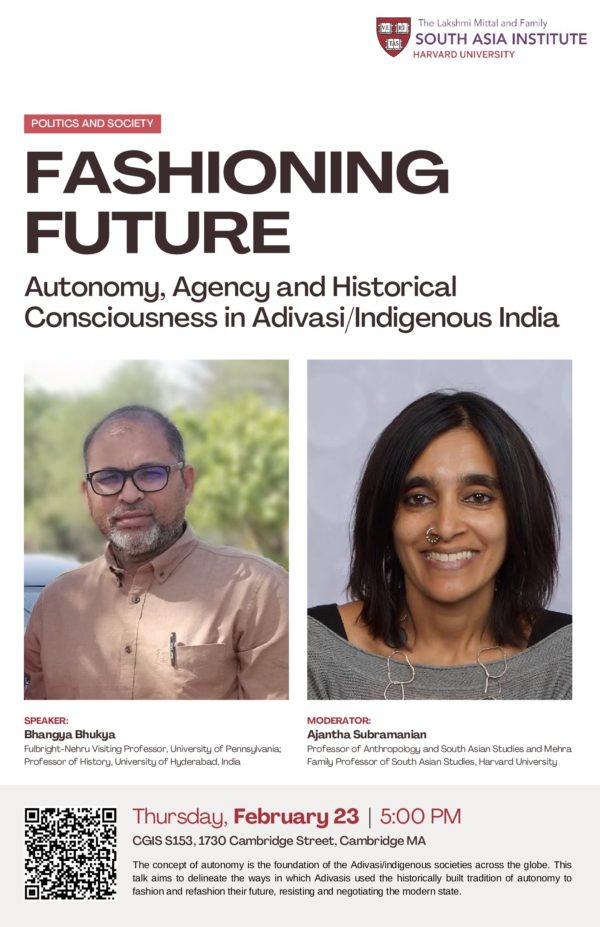Speaker: Bhangya Bhukya is a Fulbright-Nehru Visiting Professor at the University of Pennsylvania and Professor of history at the University of Hyderabad, India. He studied at the University of Warwick, UK, for his Ph.D, and was a British Council Visiting Fellow at SOAS, University of London. His most influential works on Adivasi society include Subjugated Nomads: The Lambadas under the Rule of the Nizams (2010) and The Roots of the Periphery: A History of the Gonds of Deccan India (2017). Recently, he published, History of Modern Telangana, Hyderabad (2017). A Cultural History of Telangana, from the earliest to 1724, Hyderabad (2021). He is also a public intellectual involved in Adivasi and Dalit-Bahujan movements in India.
Moderated by: Ajantha Subramanian, Professor of Anthropology and South Asian Studies and Mehra Family Professor of South Asian Studies at Harvard University
Prof. Subramanian’s research interests include political economy, political ecology, colonialism and postcoloniality, space, citizenship, South Asia, and the South Asian diaspora. Her first book Shorelines: Space and Rights in South India (Stanford University Press, 2009), chronicles the struggles for resource rights by Catholic fishers on India’s southwestern coast, with a focus on how they have used spatial imaginaries and practices to constitute themselves as political subjects. Her second book, The Caste of Merit: Engineering Education in India (Harvard University Press, 2019), tracks the relationship between meritocracy and democracy in India on order to understand the production of merit as a form of caste property and its implications for democratic transformation.

